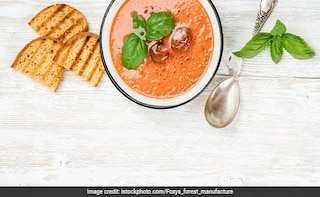Winter is finally here and we can't express the amount of delight we get out of curling up inside our blanket and slurping on some heartwarming soup. While the world of winter warmers may swing between broths, stews, chowder and soups, it is good to know what makes each one of them different from the other. But, why exactly should we take the pain to differentiate between them? Well, if you think there is a world of a difference between pilafs, biryani, fried rice and pulao, then trust us, this would be an equally enlightening tale to hear.
French onion soup
Advertisement
Winter warmers
Advertisement
For the latest food news, health tips and recipes, like us on Facebook or follow us on Twitter and YouTube.
Advertisement
